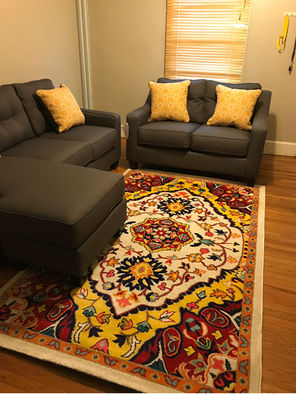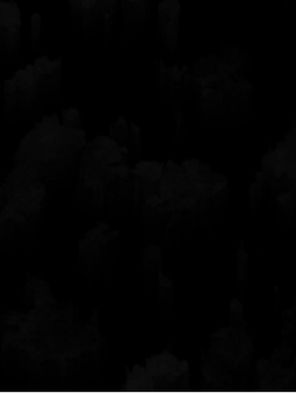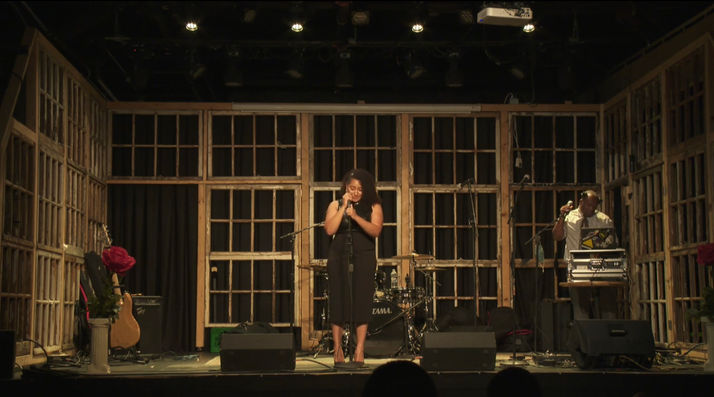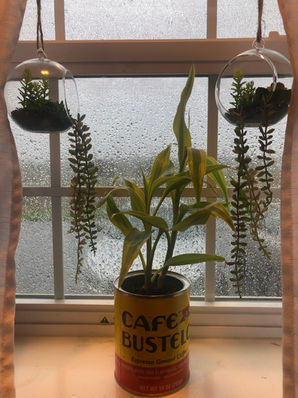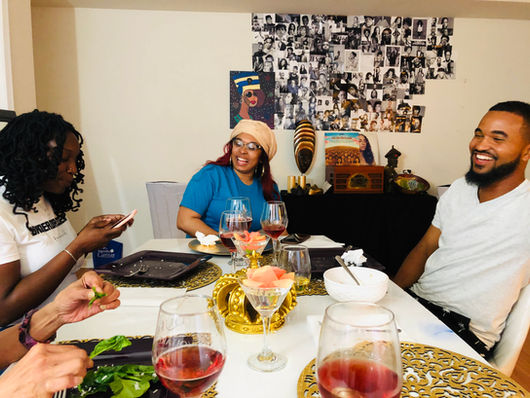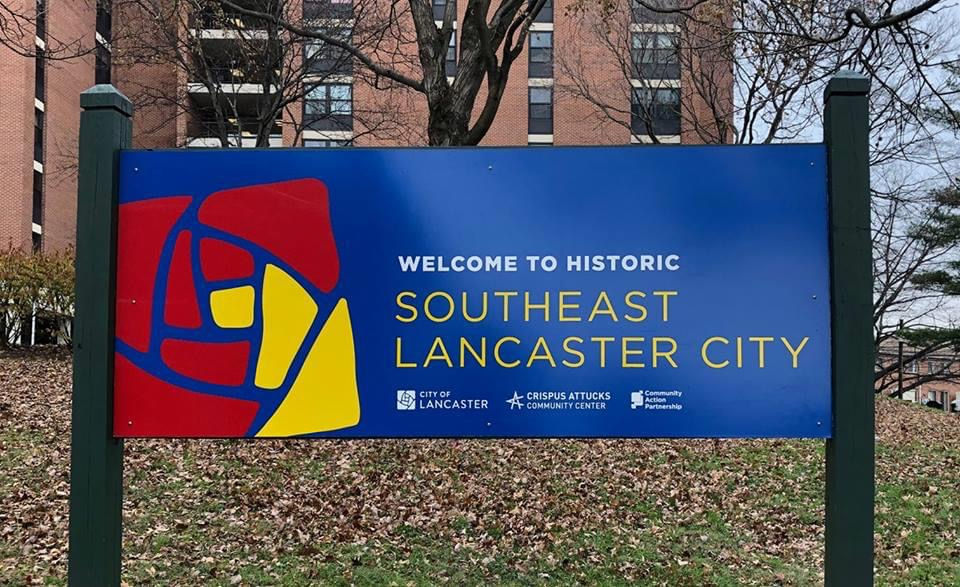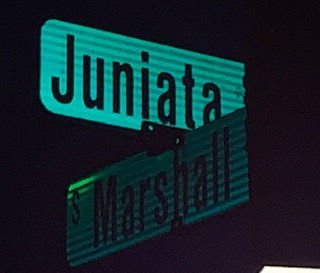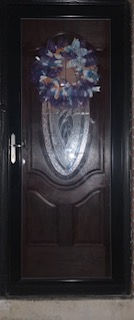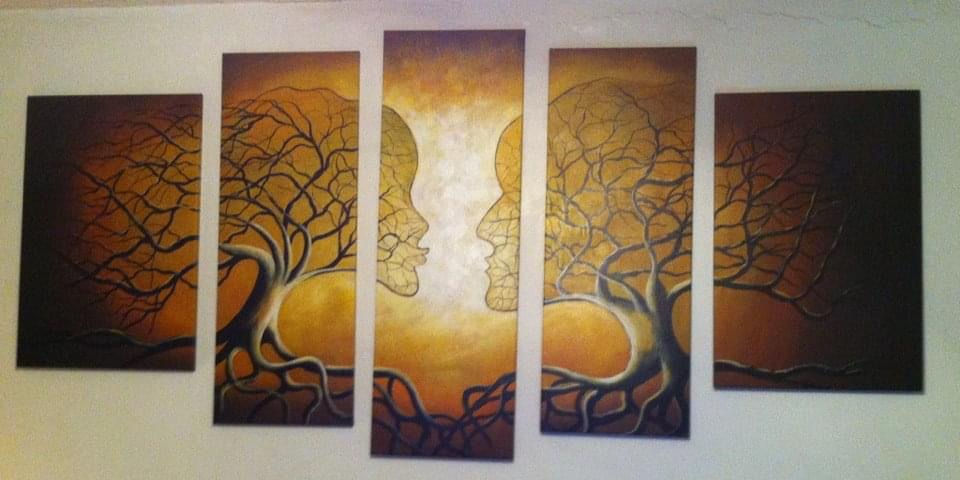SOMOS
Oral Histories Project
This project began as part of the 2019-2020 Baldwin Leadership cohort. I (Salina) will be documenting via short essays, artworks, video, and photography how Puerto Ricans and other BIPOC folks have made home here in Lancaster. The 2020-2021 series focused on stories of home! Share your story at the link below for the 2022 focus on what we want to leave behind! Somos: Aqui asks us to consider: what do we want to leave behind? What have we gained or learned from what was left for us? Your story will become part of the tapestry of the Latinx and BIPOC archive.
SOMOS: AQUI 2022-2023
COMING SOON!
SOMOS: HOME 2020-2021
SOMOS: KIRA
Kira Gohlston is new to Lancaster and shared her sense of Home with me! We talkeda about home ownership in Black and Brown communities, home as a space for creating memories, personalizing home, and finding home in Lancaster. Kira shared images and icons that remind her of home in the form of emojis and simple shapes! Kira and I met during Art Pop's first year in Culliton Park! She has been a fantastic supporter of our work and a fantastic conversationalist.
From Kira:
Images and ideas of home for me are Peace (peace emoji)✌🏽 and black square, Sanctuary (home picture), and Memories 🧠 (brain emoji).
SOMOS: ANNETTE
Salina:
How would you want to be introduced? What do you want people to know?
Annette:
My name is Annette (she, her, hers) and my last name, I have chosen to have it hyphenated. So it's Medina-Plaza? Um, I always told my, um, my husband and my family. I don't know who else to be, but Annette Medina. So I'm just going to kind of add him. Annette Medina, hyphen, Plaza. I I have two children. I have a boy. He is, um, a young man, actually 20 years old. He's studying automobile technology at Steven's currently. And I have a daughter. My son’s name is Bryan and then [my daughter’s] name is Alysha and she is 17 here next week. She's an incoming senior at JP McCaskey and they could not be any more different-they're like night and day.
So like I mentioned, I am married. was born and raised in Puerto Rico. I came to the United States in 1993. I had decided when I was barely 18, that I needed to move away from Puerto Rico. I decided to come to Pennsylvania, to study at Seton Hill college, which is in Greensburg PA and was there for a semester before coming to Lancaster for a vacation. I kind of fell in love with it, and then met my future husband as well. And that was it. I stayed and never went back.
I Currently have two jobs, both full-time and, and just so happens that both are virtual now. And they couldn't be more different. I do a claim processing, so I'm dealing with medical claims on the mental health side for one. And then the other, I'm a department secretary at Millersville university.

Salina:
So it seems like you started to touch on it and I know you have the images you shared of Puerto Rico so I’m curious what home means for you?
Annette:
So this has been really interesting because for me, home is family, but when I think of home, there's two things that always come to mind. First, is Puerto Rico, my Island, and then my kids. So if I have to like put a definition to it, I guess it's where my kids are, where my husband is.
And then half of my heart is back home. So, Puerto Rico is home, always will be home, just, you know, I have practically my entire family over there-the food, the atmosphere, the beach, the coqui that's, you know, that's what I think of when I think of home. That and my kids.
Salina:
And it's funny. Cause all of those things that you named or what you were able to capture in the pictures that you have. You have the plate of food- that I was like, ‘Oh, I want that right now.’ And the beach and your children. I'm curious, you mentioned that you moved to Lancaster as a young adult so, how long you've lived in your current home.
Annette:
I've been, in my current home, it’s going to be 17 years. So we moved in here-My daughter was born in August of 2003-and we moved to this home in October of 2003. So, we're going to be here as long as she's been alive.
Salina:
So I'm also curious how many homes do you think you've had?
Annette:
So I've lived in different places since moving to the states. When I came to Lancaster as a break from I think it was an Easter break from college, I stayed with my uncles-my father's uncle. When I decided to come for the summer, that's where I stayed for awhile. So I, you know, that was, I don't know that I will call that home, but it was a house that I lived in for awhile. Then when I moved in with my husband, that became then the center of what home was for me at that time. After that we moved to an apartment while our house was being built. We were on Marshall street for almost 10 years, right down behind Hand. It's like two houses in a little corner right there. So ours, was the blue house in the corner. By that time, you know, I had my little one, Bryan, and we just wanted something, a little quieter to be able to raise them. Then I was pregnant with my daughter, so we were looking around and ended up finding a lot that we wanted to build on. So we moved into an apartment while that was being done. And then this was home! We've been here ever since. And I have no plans on moving. Unless it is to go back to Puerto Rico, I'm not moving.

Salina:
I think you started to make an important distinction too. I like that you kind of just naturally went there. One of the questions that I like to ask is what is the difference between a house and a home?
Annette:
For me, a house is just a place where I sleep, and you know, like rest at night, the place that I can just go to when I need to relax, for like shelter or whatever, you know, it's temporary. Like my uncle, it was his house I stayed in and I never felt like it was anyone’s but his house. For me, that's the big distinction. Like once I moved in with my husband, I was able to kind of put my stamp on things and just make things, how I wanted them to be comfortable and put all my little knick knacks and things that make me think of home and make me comfortable. And then, you know, he added his. So, it's hard to describe. There's a feeling. You know, there's a difference and you feel the difference between, you know, a place that is temporary versus a place that you want to kind of like put down roots and, and grow and, and, and, make your own.
Salina:
Right. That makes a lot of sense. I spoke with Jasmine and Tene earlier and when Jasmine was talking about home, it became like, how do I make home in myself? Then eventually let it bleed out into the spaces that I'm in. But it's like the space never confines what home means. And then for Tene, it was much more about being comfortable and making sure people feel confident and comfortable in your space, and they can say ‘I can be myself here’.
I like the way that you're sort of talking about it also being something that you carry rather than always a physical space. I also like that you're talking about putting things up and signifying, like ‘this is my space’. I do think that's can be distinctly Puerto Rican or Carribean thing to do too. Tene and I were talking about her Puerto Rican grandfather who had a lot of like, he was, uh, had a lot of little things on his walls and decoration. And I was like, my great grandmother had that too!
Annette:
I think it's funny because for me,when I think of my grandmothers and my grandparents' homes, I always think of the little knick knacks. Like the little, dolls and the virgen, and the cross but I don't have any of that. So for me, it’s all about the colors and the feeling of, so I have a lot of like family pictures everywhere, like from his father’s side, from my side. And, um, I remember one time, years ago, someone came to visit, looked around and said, ‘Oh, your house doesn't smell or look Puerto Rican.’ And I was like, ‘wait, what does that mean?...I can assure you it is.’
I guess a lot of people I expect, you know, all the little things. And for me I feel very, very much Puerto Rican without having all that around. And some people don't or were not able to understand that.
Salina:
I think it's generational too, because I can see how my grandmother shifted and then how my parents shifted. And like, they went the exact opposite direction. So my grandmother has like the family pictures everywhere and some, some little Jesuses around, the statues, but not as many as my great-grandma and she has less plastic on the couches and the things you’d think of. But parents were much more minimal. So they were just like let’s have nice colors on the walls, nothing else. And now I'm even the opposite of them with more art and more things that personalize my spaces. But it is all very much about like, I need to, I need to make it feel like people can look at my space and see what I'm about in some ways.
Annette:
Right.
For me, it's like my house, like out there-outside this door is very calm. But in here, you will see all my books, all my pictures, my flag, all knickknacks everywhere. This is like my chaotic chaotic space because I can just, just be here without apologizing. You know, this is my space. So it feels good to be able to have that.
Salina:
Totally, totally. And now the other question I like to ask is different. So we've been talking about home more in the sense of like a house, like a physical place and we touched on knowing when a house becomes a home but I’m curious if there's a time that you've ever felt truly at home and it didn't or it wasn't necessarily tied to like a space. Maybe it's like a community or one event or like with another person or just, you did something and you were like, ‘Oh, this feels like home.’

Annette:
I have to think a little bit about that because there’s been several instances when I just felt like an instant connection. You know, um, for example, when I, when I met my husband, you know, it was like, it felt comfortable. It felt, you know, as we got to know each other, he felt like...he pretty much reminded me so much of home. Right. Then there’s any time I go to the beach. When I went to North Carolina to the Outer Banks, it was when I stepped outside the house and was on that deck, it just fell right. Because it was just the beach, it was just the water and the waves. And I was like, this is what I remember.
And then I always feel right when I'm with my kids, you know, they, they feel home. They are my home. To an extent I feel like Millersville reminds me of home, it's funny. Millersville reminds me of the gatherings that you see sometimes in the community. Like spontaneous gatherings with people just breaking out in song or music or whatever. Especially the first year that I started there, cause I started in April last year (2019). So there were a lot of activities that Millersville was doing. And there was always music and young people just gathering around and that reminded me of home and made me feel comfortable.
Salina:
Can you tell me how you feel about spiritual homes? So do you feel like you've had a spiritual home or if it's not like spiritual/ religious, but a place or something that feels like it transcends, it's kind of similar to the conversation we've been having.
Annette:
Yeah. So when I think of, spiritual, that that always brings up religion for me. Right. And, like as far from what my family is, I was raised in the Catholic religion. I went to catechism classes. Catecismo todo lo’ Domingo. I went to church as expected, did my communion and all that. But as I grew up, it's been more of an internal thing. So for me it is not something I think of on a regular basis it’s just like I'm okay with me in the place where I'm at right now. And as long as my kids are doing alright. And having those values that are so important, I don't think of like religion. They did, of course, the whole prerequisite of going to church and doing the classes and communion and, you know, consummate, they did all that. But again, I didn’t feel like I needed to push them.I just kind of showed them what it could be for them and then let them make their own decision.
And not only was I raised in the Catholic church, my grandmother was very much into Santeria And my, my great grandfather was a Santero. So you grew up with both. So for me, they were interchangeable all throughout my growing years. It's kind of more about, as long as you're doing right. As long as you're not hurting anyone, as long as you're good to yourself, you know, that's all that counts. That kind of thing. So, but I never really consciously think of spirituality.
Salina:
Yeah. That makes sense. I have a similar feeling. I grew up religious but then kind of started to feel like this might not be the right way anymore. I liked the way that you said that you can like show your children their options essentially. And then let them decide because I think so much harm has been done, especially in the Latinx community. When we try to force people into things, that doesn't work. It just doesn't work. And if ultimately we've all been like hiding our true beliefs behind what’s acceptable it’s harmful. I've had family that practiced santeria or something similar and they still go to mass every Sunday, too. It’s interesting because for so long our community never saw anything wrong with that.
Annette:
And I didn't see any conflict growing up. I didn't see why one had to be exclusive from the other or one had to be considered bad while the other one was good. I don't think it was conscious on the part of my family. It was just what it was. Right. So if I was with my mom's side of the family, right. I knew that we were going to church every Sunday and I was going to classes de catecismo, you know, this, this is what we did. Right. We did all those things with the youth group and retreats and I enjoyed every minute of it. And I loved going to it every year. Right. But then I knew that when I was with my mom and my dad's family, although they were religious as well and went to church, they believed more in like the power of earth and like herbs and things like that. And helping yourself and that kind of spiritual world that you don't talk about or see very often. So, you know, there goes my grandfather, my great-grandfather making all the little, you know, mal de ojo things or whatever. And you just, you know, my grandmother, every Sunday, cleaning the house back to the front to get all the bad luck.
It was, it was what we did. Right. It never felt like I was in a battle with either one. It just was. So I think that I was like, well, you will do this while you're young, you know, do the baptism and all that other stuff for my kids. And then after that, I was like, so what do you want to do? And they both decided that they didn't want to keep going to that church. My son has his own views on it and my daughter has her own views. And they're just, again, night and day, they're completely different. My daughter has gone to like other places of worship with friends and things. I just feel like, again, as long as you're good with yourself, when you're not doing anything that is harming anyone paid, then you should, you shouldn't feel bad.

Salina:
Yeah. I like the way you said that. I also went to a Mennonite school and one of the things in the Mennonite school that we talked about a lot that I still carry with me-because I'm, I'm a huge proponent of like, take what works and just leave what didn't- was community and the idea of the church being a community. So like you're not confined to a building and the church never was supposed to be confined to a building. It was never supposed to be confined to like these really specific, rigid rules. It was always supposed to be about the collective. I think culturally, we really, you know, we gravitate towards doing things for each other, for the family, for the community. And family is so big for us but is also not confined. I’m still finding out about titi’s and tio’s that aren’t actually blood related.
Annette:
It’s like “Oh yeah. Oh, you didn't know. That was my best friend in high school. That's your Titi, go with it.”
Salina:
So I’m curious how that sense of community and home and the collective relates to you in any way?
Annette:
I agree with that. I think that I tried to convey that sense of community with my kids and it's hard because I think if you haven’t lived it, it’s hard to imagine. And not being in the heart of the city makes it hard. We're kind of on the outskirts where we live. So, it's kind of tough sometimes to grasp certain deas or concepts. You know, they were also the youngest ones in the family that were all older, so they were not like little ones around when they were growing up too. So they didn't have that same sense of community. So it's even harder to understand, but for me growing up, it was like, you couldn't like step outside of your house without the entire neighborhood knowing you did. I will walk down to school instead of taking the bus.And my mom got updates all throughout my walk until I got to school. I was like, how did you know that I got here? And she's like, I got my ways. Because everybody knew you and watched out for you and knew where you were. I do miss that. And I think a community that works well is a community that does that, right. They watch out for each other, that they have each other's back, you know. They understand that it really does take a village. You know, you can't, you can't do it alone. Right. So I do kind of feel sad for my kids because they have missed that. They don't, they haven't been able to experience that like I did. It's one of the things that I do wish that more young people got to experience.
Salina:
True. And I think we're slowly shifting to that mentality again. We moved away from it for a while, but I think we're slowly shifting back to that as we realize, especially with the current circumstances around Covid and staying inside more. The idea that we do actually need each other. I do agree. I mean, I miss that community feeling that, that knowing that wherever you went, someone will watch out for you, right. Not just looking at you to see if you were doing something wrong, but watching out to make sure you were all right, that you could, you know, reach out to anyone and say, I'm in trouble. Help me, or I just need a glass of water. I just need to rest for five minutes and have those safe spaces in your neighborhood. So I am hopeful that we continue to go that way.
Annette:
Yeah. I'm hopeful too. Like it takes a long time. And to me, it’s so sad because I come from that. And then to come here and there was none of that. It’s like you miss it and then you kind of get used to not having that sense of community anymore.

Salina:
We’ve talked about this in the past too with our community, not really having like, outside of maybe San Juan Bautista being a kind of community center. But not having like a space, a space where that kind of lifting each other up outside of the home. I think what has taken its place is like Facebook and I'm still hopeful that we'll have a physical place here somewhere that we can, that we can have that sense of community.
Annette:
I also think it’s difficult to create those spaces in a place that looks at you as if you were foreign. And looks at you as if that what you're doing is so out of the norm. So it is kind of hard to carve out those public spaces for our culture. You have to kind of have that resilience and that frame of mind like ‘I can do this, this is worth doing’. But it’s hard when others don’t value it and you give up. You know, you kind of go with the flow because it's so much easier. I can say that from experience because I did it. I stopped speaking Spanish and switched to English the entire time. And when I raised my kids, their primary language was English. So it's not that they don't know Spanish. They know a little Spanish. They're not fluent now, as they're getting older, they're getting better at it because now they're like having more conversations they're out working with the community. So they're kind of forced to get that now that they're forced to kind of understand those little things, you know, but it's like, I think for me it’s kind of sad. I think that’s the biggest failure to me personally. Like the fact that I just kind of went with it because it was easier. I think in doing that I inadvertently had them miss out on a lot of their culture. And not at all meaning to. It just kind of happened.
Salina:
I can relate to that. To your children’s experience. I speak Spanglish pretty well and I studied it in school and it's still, it just didn't stick for me. And partially because like most of my teachers were not Puerto Rican. So I go home to Puerto Rican Spanish and Dominican Spanish. And I'm being taught by Mexican teachers and teachers who studied in Argentina or other parts of South America and it wasn’t the same. So it's really hard. I think one of the things that I've come to terms with as an adult is that as a kid, I didn’t understand and I did resent my parents for not teaching me Spanish and had moments where I was like Oh, why didn't you do that? But now I think differently and can ask myself, Is it actually easy? I realized that they are already working
like three times as hard to get what some people get just for doing almost nothing and it’s so unfair. All of that extra work that we have to do as people that are still looked at as immigrants in a derogatory way. So now I feel like making that choice to say, I'm just going to be, and do what I can and sometimes do the easy thing, it's not necessarily like you failed, right? Like it's, it's hard to live here, it’s hard to do everything here as an outsider.
Annette:
I see that. For me, my personal experience, I do feel like I don't truly belong here or there. Right. And it's interesting because I see myself caught. So I went to Puerto Rico three years ago and I went through a very sad situation. My grandmother died. So we went to, you know, take care of that. But while I was there, I noticed something about myself. I was utterly relaxed. I did not feel like I had to do anything. I did not want to be any way. It was such a relaxing time for such a sad time. Right. And then I miss, of course my family, like I did miss them a lot even if here I’m like talking to them, you know, every day. But to be in Puerto Rico and with them, the feeling was so different. Right. When I'm here in Lancaster, I noticed how my demeanor, the way I talk to people, the way I present my all that was completely different. And it took me going there for almost two weeks and coming back to see that difference in myself, it was like two different people. It's been three years since then, so I don't see the difference anymore. But I do feel like we can’t fully fit in here, or if I decide to, I have to speak a certain way. You have to portray yourself a certain way. Like you don't want to raise too many eyebrows. You don't want to be too vocal. You don't want to bring attention to yourself. And I'm really bad at that because sometimes I forget, I just say things and people are like, looking at me, like, what are you going about? Sometimes it's like, I forget and don't bite my tongue. I'm always in trouble. But it just feels like a lot of the time here, you just have to be very conscious of where you're at and who's around you and it's harder to be relaxed. Yeah.
Salina:
Oh, I definitely feel that. The last question I have, um, I kind of feel like we've answered, but I'm going to ask it anyways, just to see if there's anything else that comes up related to what we’ve talked about. How do you make home for yourself?
Annette:
Home is just my kids. Like, wherever they're at, I'm at home. Cause I know that the important things in my life are safe. I say, my kids but I also mean that I love my husband and he is part of it, but my kids are of me. Right. They came from me. So you know, it's just that whole idea that they’re my family. My kids and my husband- that is home. And it's just the feeling of just making a space for yourself where you feel comfortable to be yourself when you need to be, you know. I love my house, I love my home, but then this is my room where I can just, you know, just kinda just relax, you know? It’s funny because it's also my work space. I spend 70 plus hours in this place sometimes. Like we, you know, especially now with COVID, so I miss a lot of what's happening outside the doors . As the kids grow older I see them less and less because they have their own responsibilities and stuff. But I think that as long as I can have them around and have them come visit it really doesn’t matter where I’m at. Just as long as they’re there. I know that they can reach me. So for me it’s not so much about making a home but feeling at home with the people that are most important to me.
Salina:
That is really sweet. My sister and I moved out but there are still our younger siblings back home and we all live in Lancaster so we do see each other. For my mom and dad even though the younger ones are home they still struggle with us not being home anymore. We’ve talked about it and joke about it but they’re like, well of course we love having the younger one’s here but it’s different because we want ALL of you here.
Annette:
Yeah. She’s right. Like I try not to think about it because my sone is 20 and I can see him one day coming to me ready to move out. And my daughter is graduating soon and I’m not going to have her here with me so it’s like it becomes harder to think about home when my home is so far away.
Salina:
I understand that for sure. With my parents and with Covid we started using video calls to stay connected since we can’t physically be together. And my dad will sometimes call and just have the video going while he’s cooking or doing something just because he likes for it to feel like we’re together. It’s really sweet. I’ll mess with him and be like ‘you’re not even talking to me I’m just watching you cook’ and he’s like ‘that’s okay’.
Annette:
Right! It doesn't matter. I can completely understand that. My son not long ago went and installed Zoom on my mom's laptop. So I did one session with her and she was ecstatic, so happy. And I was like, ‘we can do this more often!’ She's like,’ Oh, can I do this with my mom?’ I was like, ‘yeah.!’
Salina:
I love that. One beautiful thing that has come out of all of this is that we’re communicating even more than we did pre-Covid. Like a lot of my aunts and uncles that are like using WhatsApp and stuff to communicate. Now we’re having weekly or bi-weekly family conversations over Zoom or Meet. It’s great.
Annette:
I think for me Covid has also brought it home even more the fact that my family is so far away. Right. Cause I have my mom, my parents here and all three of my siblings, um, well in the States, my mom, until my siblings are here, the other one is like four hours away. But the rest of my family is in PR. So it's like, you go through hearing about this illnesses and you're not there for any of them. And I grew up with all of them, like, how do you cope with that? Knowing that even now more than ever, you can't go anywhere.
Salina:
Right. And it’s really been one thing after another that has hit the islands.
Annette:
Right. It's hard. I always say if you're from Puerto Rico, Dominican Republic, Cuban or Haiti, you have pretty thick skin because as we’ve gone through lately, all of it: Covd and the earthquake and the storms and all the electrical issues and water pollution that came about from all this. I mean, I don't even know what else you can throw at that region and yet we see that our people come out of it, smiling and still have that feeling of home. Someone remarked on the fact that they went to Puerto Rico, just before Covid and everything kind of got really crazy. They're like, ‘people are like really hard up, but everybody's still singing and smiling.’ And I'm like, ‘what are they supposed to do?’. It’s like people expect to see a community that is dejected and that's not what they're getting. So they get the mistaken impression that everything is okay, because there's, you know, we're still smiling, we're still singing. We're still, you know, celebrating. It's like, but that's just how we are. That’s our culture
Salina:
That's actually a really good point. And I liked the way that you articulated it too, especially like comparing it to the conversation we're having about the sense of community here. And it bleeds into the politics and bleeds into how much aid or care or attention is at the Southeast. And it's like only when people are at their worst or we like, ah, look, see, they need help. Let's step in. Um, and then quickly step out. Tene and I were talking about how a lot of people are feeling like sometimes organizations come in and think they know exactly what a community needs, but it's like, did you actually talk to anybody? .
Annette:
I think about having my kids in elementary school. You know, I’ve always been an involved parent in PTO and PAC and all that. And the counseling centers come to tell us how to parent,
because we were not doing it “Right”. And you know how hard it was not to say something that day?! We see it all the time. Because they have this idea that we just are unable to parent because it's not done the way they're used to, you know, the way they believe it should be. And then to see that reflected when my kids were in elementary and middle school. And then again, when they were in high school, it's like, does it ever change? Like why do you continually bring people into our schools that have no sense of what an immigrant community goes through that don't understand the cultural differences between themselves and the people they're trying to teach? You know, why do you believe it's okay to bring someone in to tell your parents how to be parents? Like what makes you think that that's right. And we’re supposed to smile and thank them. I had a heated conversation about this one time when I was involved at the middle school level. One of the counseling groups came to a PTO meeting to complain that they had all this stuff that they were offering to teach parents how to be good parents, but no one was coming. Like the attendance was so low. And I was just sitting in the back. I was really quiet and listening. And this gentleman -tall, white man- stands up and says, you know, he had really good strategies for those families and those families needed to hear and, you know, he keeps saying “them” and “those” and it was really getting to me. Right. So, when he I was like, so who are “them”? And what are “those people” and exactly who are you to tell our families how to be good? You have no understanding or the community. They’re not asking for a handout.
They're not asking you to get them straight. They're just saying specifically, I don't understand how to help my child with this subject matter. Right. So what kind of resources can you provide for them so they can help with that? We didn't ask you to tell us how to parent. After all that, I was told that there was no reason to be angry, that there was no reason to be confrontational. And I'm like, I didn't think I was either, but okay. And that happens still to this day, I have a 20 and a 17 year old and the issues are still the same.
Salina:
Right and it really bleeds out into our city at large too. You and I have talked about this a lot in the past. LIke when you go downtown, even if we love it or feel like this is our city, we still constantly ask: how well are we represented? We're not in the galleries. You know, the music isn’t ours unless it’s Hispanic heritage month?
Annette:
It's all fun and interesting to see and really there's nothing wrong with the art and music as it is now but there is something wrong with it not being inclusive of all that Lancaster holds you know. Like how truly are we actually present or represented at all times? And how can you truly say that you represent a diverse community when none of that is visible and then it's expected to stay in the South side. Like our culture stays in the South Side but not bleed anywhere else. Like, why is it okay to do that? But then expect that same community to back you and be there for you when the reverse is not happening. So I think that goes again to a feeling of home because people have made the southside their home. Right. They are slowly making it into a community and kind of creating that sense of what they come from right. And I'm sorry, but sometimes who you think is the “bad guy” is the person that's going to have your back when you're out here. So it's hard to see them sometimes as a bad person. Right. And too often the powers that be want you to point out the “bad guy” but that’s not how it is for us all the time.
Because we don't see them like that. And really we don't see those folks coming to our communities and helping them with that. We see the people that are here, that yes. It’s not about judgement. Like maybe they are not doing certain things “correctly”. Right. That they're not following the path that you would like them to, but they're the ones that are bringing you, you know, a meal, the ones that are watching out for your kids, they ones are making sure you're, you know, you're okay. Yeah. I wish people understood that.
Salina:
Right it’s out of necessity and sometimes we just know that we can take care of each other better than systems do.
Annette:
Right. When, you're part of that neighborhood. You're part of the family, the extended family. So, um, they, they do. And, and I remember feeling that in Puerto Rico. Ultimately, I’ve learned along the way. You just make your home where you can. Right. And, and you share the things that for you mean that, and then you kind of forget everything else.
SOMOS: EVITA
I had the immense pleasure of talking with Evita Colon! Evita is a phenomenal artist and community leader. Her work looks at the intersections of identity as a Black woman, a Queer person, and the legacy of those that paved the way. You can see more of her work at Speak 2 My Soul. She is currently working on a brand new magazine elevating Black voices in the area! Evita and her partner Solise are also in the thick of planning to open A Concrete Rose Book Bar and you can find more information on how to support their work here! Below are some images Evita shared of what Home means to her.
SOMOS: JAZMINE
Last month I interviewed Jazmine Rivera and we talked about conceptions of home, religion, spirituality, and family. It was a beautiful conversation that I truly treasure. Jazmine and I have never met until this conversation! Jazmine is a fierce mama, community leader, and owns J's Mixed Seasoning with her family. Give them a follow! She's super conscientious of what goes into her food and keeping things tasty.
Here are some images Jazmine shared of what Home means to her. We talk through some of these in the interview. Give it a listen!
SOMOS: ARI
Here is the interview I did with Ari Felix of www.saltwaterstars.com. Ari is a founding member of Latinx Lancaster and chosen family. I asked Ari to share images of what home looks like for them. This is the first of what will be a series of recorded interviews and photos from folks in the Boricua and Dominican diaspora. (stay tuned for transcript)
SOMOS: TENE
Last month I interviewed Tene Darby! She describes herself as a bridge and liason for her community. We talked about layers of home and zeroed in on comfort as a symbol of trust and home. We had some great laughs! And learned some Lancaster history in the process! Tene is really involved in all aspects of her community and most recently helped launch the Southeast Times. Tene is an example of civic engagement that is all about supporting and uplifting your community.
Check out our interview here and images that represent home from Tene!!
